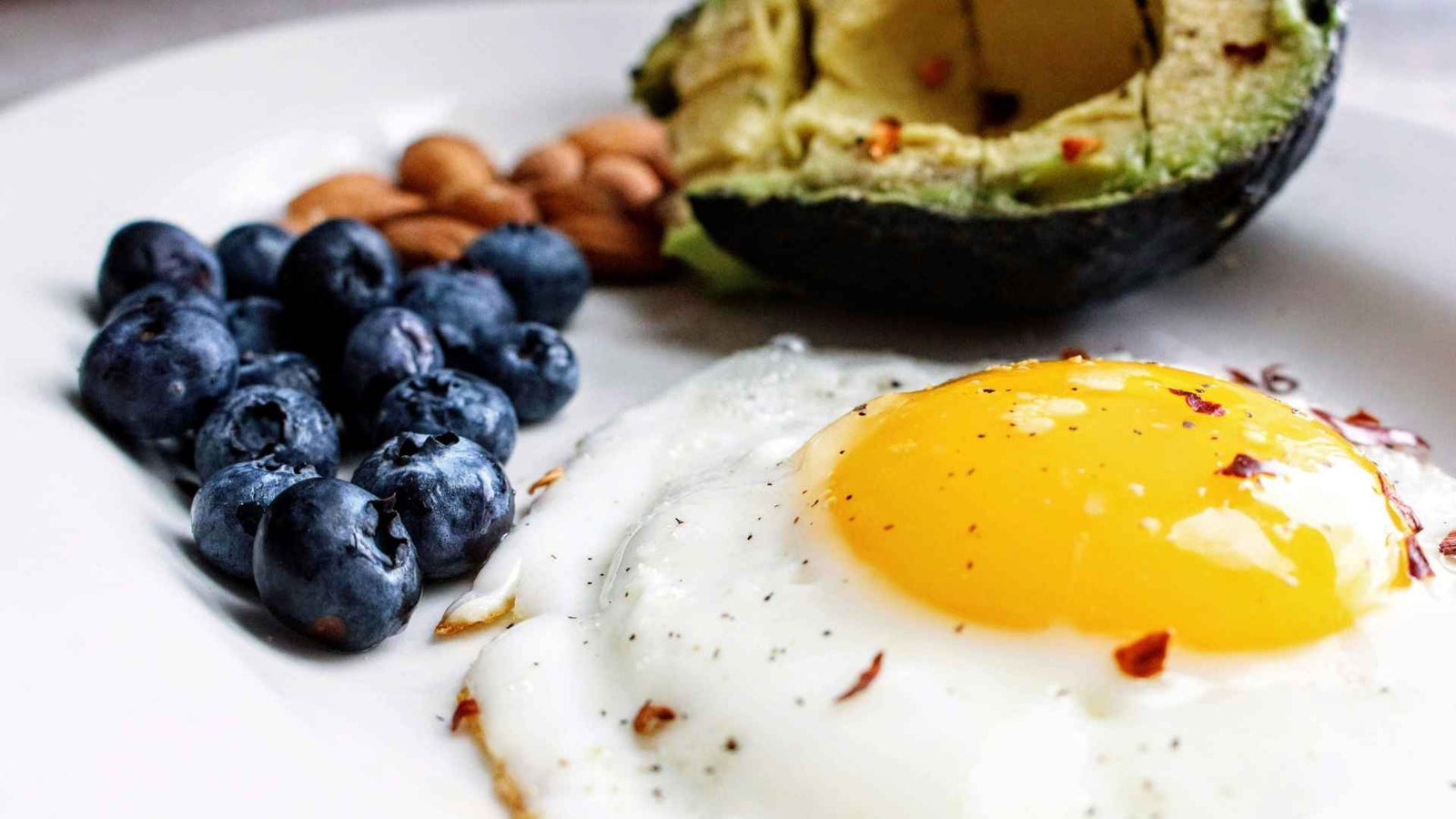How chronic stress sabotages your gut health - and what you can do about it
Highlights of the episode
- How stress specifically affects your digestion
- Why you may suddenly react even to healthy foods
- What simple but effective steps you can take to get back into balance
"I'm doing everything right - why am I still not feeling better?"
Are you paying attention to your diet, taking probiotics, eating a high-fibre diet, getting enough sleep and living a healthy lifestyle - and yet your digestion is still not in order? Do you feel exhausted even though you're trying to do everything right? Then the reason could be stress.
Julia Gruber talks about exactly this connection in her podcast episode. She uses the effect of stress on the gut to explain why digestion doesn't improve despite eating a healthy diet.
What happens in the body under stress?
Under stress, the body releases cortisol - a hormone that makes us more efficient. At the same time, the sympathetic nervous system is activated, i.e. the part of the nervous system responsible for flight or fight. This means that the body shuts down everything it doesn't need to survive at that moment - including digestion.
Julia describes this like a firefighting mode: there's a fire somewhere and the body has to put it out. There is no energy left for renovation work, regeneration or bowel care. If this condition persists for weeks or months, the bowel suffers massively.
7
Effects of stress on the bowel
Altered bowel movement
Stress inhibits digestion and bowel movement is disrupted. The consequences: Constipation, flatulence or diarrhea. You react differently depending on the type. The coordination of the intestinal muscles is impaired.
Disruption of the intestinal flora
Stress hormones such as cortisol change the composition of the bacteria in the intestine. Good bacteria (e.g. lactobacilli) become fewer, while potentially problematic germs increase. This leads to dysbiosis - an imbalance - which promotes inflammation, intolerance, susceptibility to infections and bloating.
Inflammation and leaky gut
Stress can make the intestinal mucosa permeable. This results in a "leaky gut". Julia explains that her husband Roman reacted to almost all the foods tested during a period of stress. After reducing stress, the same test showed significantly fewer intolerances.
Changed eating behavior
Stress affects hunger and the feeling of fullness. Many people develop a craving for sweet or salty foods as compensation. This can lead to feelings of guilt, which in turn trigger new stress.
Influence on mood and serotonin
Around 90 % of serotonin ("happiness hormone") is produced in the gut. Stress impairs this production. Possible consequences: depressive moods, irritability, listlessness.
Poor sleep
Sleep problems lead to less regeneration. People who sleep badly are more stressed - and the gut is less able to recover. A vicious circle.
Exacerbation of existing illnesses
Stress can cause irritable bowel syndrome or chronic bowel disease. Inflammatory bowel diseases such as Crohn's disease or ulcerative colitis can worsen. This can lead to more frequent flare-ups.
Stress has many faces
Stress does not always have to be "too much work". A carousel of thoughts, too many unresolved issues, arguments, a noisy living environment or clutter can also cause chronic stress. Even sporting exertion, e.g. marathon training, can lead to stress if you don't recover sufficiently.
What really helps?
If you are already eating well but don't notice any improvement, it's worth paying attention to the little things:
Conscious breathing
Deep, slow breathing has a direct effect on the nervous system. Julia recommends short breathing breaks in everyday life, e.g. for 5 minutes.
Regular meals without snacks
Don't eat all the time, but take conscious breaks. Also stop "eating on the side".
Evening rituals & exercise
A cup of tea, meditation, a walk or small creative activities help to wind down. Exercise - especially in the fresh air - helps the nervous system.
Nature & dog
Julia describes how her dog Lucy forces her to go for walks - even in bad weather. It's good for the nervous system. Even if you don't have your own dog: just ask if you can help out.
Creativity
Painting, knitting or making music - short creative breaks help to reduce stress.
FaceFormer
A breathing tool that influences the vagus nerve, improves posture and thus reduces stress. Julia uses it herself for short, daily exercises.
CO2 therapy
Julia reports on the CO2 application (e.g. with CardiHaler or CardiSuit), which activates the parasympathetic nervous system and supports recovery. She feels more relaxed afterwards and sleeps better. Her smartwatch shows a higher "body battery".
Invitation to the specialist course
At the end of the episode, Julia refers to the specialist course "Mitochondria and Stress" from September 19 to 21 in Einsiedeln. This is aimed at healthcare professionals. It deals with biochemical relationships, respiration, diagnostics and practical applications. Lecturers include Dr. Egor Egorov, Dr. Klaus Bernsen, Dr. Simon Feldhaus, Prof. Dr. Burkhard Schütz and others.
If you are interested: Contact via post@arctis-biopharma.ch
LINKS
YouTube channel with video versions of the podcasts: https://www.youtube.com/@arktisbiopharmaschweiz6570
More aboutCO₂therapy& Cardihaler
https://shop.arktisbiopharma.ch/carbohaler-co2-atmung/Co2-15
https://shop.arktisbiopharma.ch/cardisuit-co2-trockenbad-anzug/Co2-10
Information & registration for the specialist course "Mitochondria & Stress"
https://shop.arktisbiopharma.ch/fachlehrgang-mitochondrien-stress-nach-angaben-der-agb-s/F-1U-Normal
Podcast episode 301 Interview with Anders Olsson about CO2 therapy:https://arktisbiopharma.ch/warum-richtiges-atmen-dein-leben-veraendern-kann-dg301/
Questions about the episode? Feel free to write me a comment on YouTube or an email to post@arktis-biopharma.ch
As a podcast listener, you will receive a discount on our products
A 15% discount on your first purchase (applicable once, only on products not already discounted)Enter the coupon code podcast15 before completing your order.
https://shop.arktisbiopharma.ch
Subscribe to the Darmglück podcast
You don't want to miss an episode in the future? Then subscribe to the Darmglück podcast in your favorite podcast app. Here are the links to my podcast in the most popular apps:





















